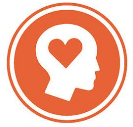Resident Wellness
Navigating residency is daunting and places trainees at especially high risk for burnout, depression and suicide in a profession already at higher risk for such adversity than the general population. Resident wellness, however, is not simply the absence of burnout, depression and suicide but instead the fostering of healthy mindset practices, development of coping mechanisms and fine tuning work-life balance habits that can be perpetuated throughout a lifetime. In fact, wellness itself can be broken into eight elements demonstrated by the wellness wheel. Each element must be addressed in order to satisfy true wellness. Please find resources available through UH and our department for each element by clicking the corresponding icon below or by navigating the wellness drop down menu in the header.
Beyond Burnout:
Creating a Culture of Support in Anesthesiology
Presented by Dr. Amy Vinson, MD, FAAP. Pediatric anesthesiologist at Boston Children’s Hospital and ASA representative to NAM Action Collaborative on Clinician Well-being and Resilience
* Presented during WAC 7/24/2024 *
Intellectual
The ability to open the mind to ideas and experiences that can facilitate personal decisions, group interaction and community betterment. This fosters desire to learn new concepts, improve skills and seek challenges in pursuit of lifelong learning.
Emotional
The ability to understand ourselves and cope with stressors. To acknowledge and share feelings in a productive manner.
Financial
The ability to identify a relationship with money and the skills in managing resources. A balance of the intricacy of the mental, physical and spiritual aspects of finances.
Physical
The ability to adopt a healthy lifestyle by partaking in physical activity, maintaining regular health assessments and developing appropriate eating habits to enhance self-esteem, self-control and self-determination.
Spiritual
The ability to be open to different cultures, religions and spiritual philosophies in search for meaning and purpose in human existence. Striving for harmony within oneself and with others when balancing inner needs and beliefs with those of the rest of the world.









